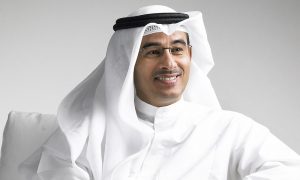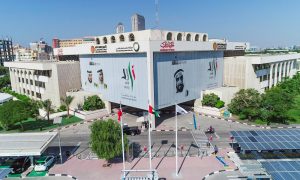Meeting Hill’s Climber
Gavin Davids talks to Mohammed Al Rais, SVP and managing director of Hill International ME

Pointing out the success Dubai has had in this regard, Al Rais holds up the emirate as an example of what can be achieved if government and industry work together. Encouragingly, the rest of the region seems to be following suit, with standardisation and regulations becoming increasingly common. This becomes even more important in light of governments in the region becoming increasingly vocal about promoting local companies and contractors for jobs in their countries. In such a scenario, the need for efficient and effective project and contract management becomes vital.
“The GCC countries are aware of PM-CM and they’re using PM-CM, not in everything, but for most things. That’s very encouraging. The UAE and Dubai is ahead of anybody else in this regard, but everyone is looking to catch up and everyone is catching up; this is hugely encouraging,” Al Rais muses.
“In Iraq, project management was not part of the structure, so that is now happening. It’s encouraging that now we’re being called in to commence project management as well as general formats of consultancy, contract management and whatever. It’s an issue of support and setting up systems.”
He adds: “The issue isn’t bringing the expertise, but to ensure that whatever expertise is coming in, will do some training in the local market. So at least there’s a transfer of knowledge and basic training of project management as well,.
This transfer of knowledge is crucial if governments are serious about allowing local contractors access to their major projects, Al Rais says. While he stresses that it’s important to involve local firms in projects, he warns that projects could easily go awry if the firms don’t have the fundamentals in place.
It is here that the work that Hill International does with ministries comes into play, with the onus on ensuring that local companies are prepared to embrace all the A to Z’s of project management, right from design and budgets to reviewing everything up front.
“In Iraq, there are a lot of companies coming in and there’s a lot qualifying (going on) for these companies. And that’s why there were a lot of problems in kick-starting these projects three or four years ago,” he says.
“Anybody who had a construction company could walk in and they could take jobs, which hurt the big boys who could deliver. At the end of the day, those companies walked away, thus the non-prequalification levels for contractors hurt Iraq a lot in my opinion.”
“The top internationals will not get work when they’re competing with small companies and I think the market of Iraq has learnt from that and is in a correction phase. There are still a lot of problems,” Al Rais claims.
However, he again refers to Dubai as the standard that the rest of the GCC needs to follow, pointing out that the emirate has utilised its resources to the best of its advantage.
“Dubai, I believe, is one of the best construction markets in the world. It is a pot of cultures; it is a pot of standards, people from all over the world,” he says.
“Look at Dubai five or ten years ago, wbefore it started to peak. Everyone from all over the world was here, South Africans, Europeans, the Far East, Philippines, the Arab World, Indians, everyone was here.
“They created a pot of cultures, not only in living, but also in construction. Then when Dubai started kicking off, they utilised the best systems, the most modern techniques, they used the best and the best and the latest.”
“The construction industry in this country leads the field, from fast track to delivery to standards. Look at the infrastructure and the highways, other countries would take twice as much time to build these things. Dubai leads and other countries will follow,” Al Rais concludes, confidently and with more than a touch of optimism.























